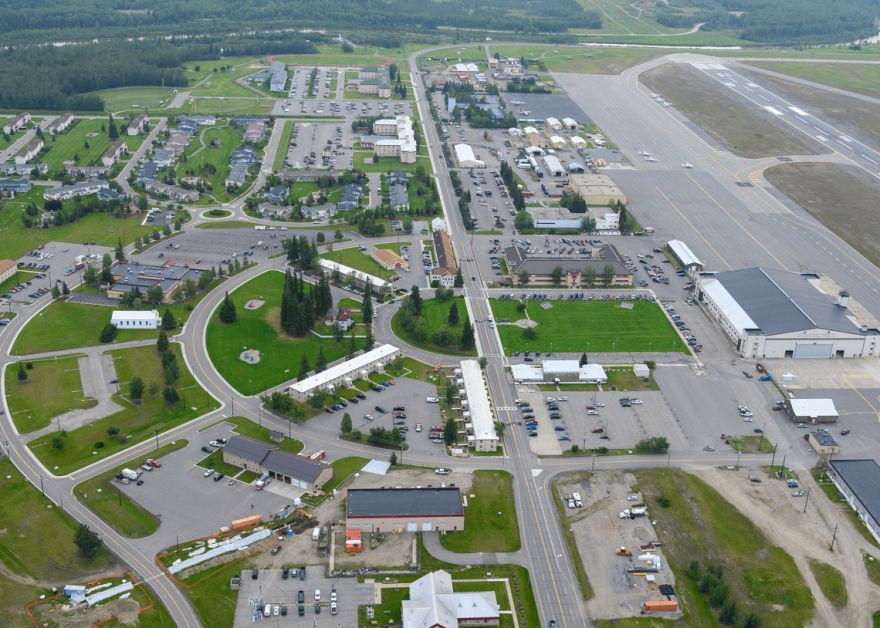Suicides among Alaska Army soldiers dropped sharply last year, as leaders push mental health programs and move to improve both pay and facilities for military serving on the Last Frontier.
Numbers provided by the 11th Airborne Division, covering both Fort Wainwright in Fairbanks and Joint Base Elmendorf-Richardson in Anchorage, list one confirmed suicide at each post plus four others under investigation. The total of six is down from 17 in 2021, and the lowest since 2018.
Division spokesman John Pennell stressed that even one suicide is too many.
“So the numbers are down, but obviously we still have a long way to go,” Pennell said.
He attributed the past year’s reduction to increased focus on soldier mental health within the division, including the Mission 100 program launched in early 2022.
“(Mission 100) dictates that 100% percent of our soldiers, every single soldier, gets wellness counseling from military and family life counselors to make sure that everybody has a chance to experience counseling, to understand that it’s nothing to be afraid of,” Pennell said. “It’s not going to be a career ender. There should be no stigma associated with seeking help.”
Under the program, all of the Alaska-based division’s soldiers met with military counselors last year, including 10,000 in the program’s first eight months.
“And of that first 10,000 soldiers, nearly half have been referred from the counseling sessions to other helping agencies, for problems with finance, marriage counseling, other problems that are creating stress in their lives,” Pennell said.
Pennell said Mission 100 also aims to ensure Alaska Army leaders connect with their soldiers.
“You know there’s a difference in being in contact with somebody and being connected with somebody,” Pennell said. “Being in contact is when you see them on the street and say hi. Being connected is when you care enough to stop and talk to the person and find out what’s going on in their life, what kind of stressors they’re dealing with and how that can be helped.”
Pennell credits the federal Department of the Army and Alaska’s congressional delegation for funding Mission 100 and other mental health initiatives.
The Alaska program is part of a nationwide response to suicide rates that jumped 40% among active-duty service members between 2015 and 2020, with rates in Alaska doubling during the same time period.
Military leaders also say they're focused on other parts of soldiers' well-being.
Starting this year, Alaska-based soldiers are eligible to collect “Arctic pay” for performing critical work in cold weather, on top of a 4.6% increase in salaries for all military members.
Plus, the Army says it's continuing to invest in quality-of-life facilities at its Alaska posts. A federal spending package approved in December includes $99 million for a new fitness center at Fort Wainwright.
Fort Wainwright’s commander, Col. Nate Surrey, said the facility will be nearly 73,000 square feet in size.
“It’s directly going to what we call PFC, Physical Fitness Center annex, which you might call a field house,” Surrey said.
According to Surrey, the annex will include an Astroturf field and a raised 200-meter running track.
“If there’s any place in the Army that needs that, it’s Fort Wainwright, due to the intense harsh temperatures that we have up here,” Surrey said. “We just had negative, I think, 47 a few weeks ago, so this facility is another huge indoor space that is drastically needed that our soldiers and families can utilize.”
Work has been in progress since last summer on the fort's new aquatics center.
“It will have an Olympic-size pool for lap swimming and a second pool to the left of it that’s about the same size, that’s a family pool so it’s kind of zero entry, zero depth entry pool,” Surrey said. “It has slides. It has water guns. Things like that.”
Also under construction at the fort are new community activity and child development centers.
Surrey said having top-notch facilities sends a message.
“That this is the place to come, and you can thrive here,” he said. “That is the overall vision, is to have a community that can thrive in the Arctic.”
Surrey said the latest military spending bill includes $40 million in equipment and research funding for the 11th Airborne Division.
The national suicide and crisis lifeline is available by calling or texting 988, with the Veterans Crisis Line available by dialing 1 during a 988 call or sending a text message to 838255. There is also an online chat at 988lifeline.org.


